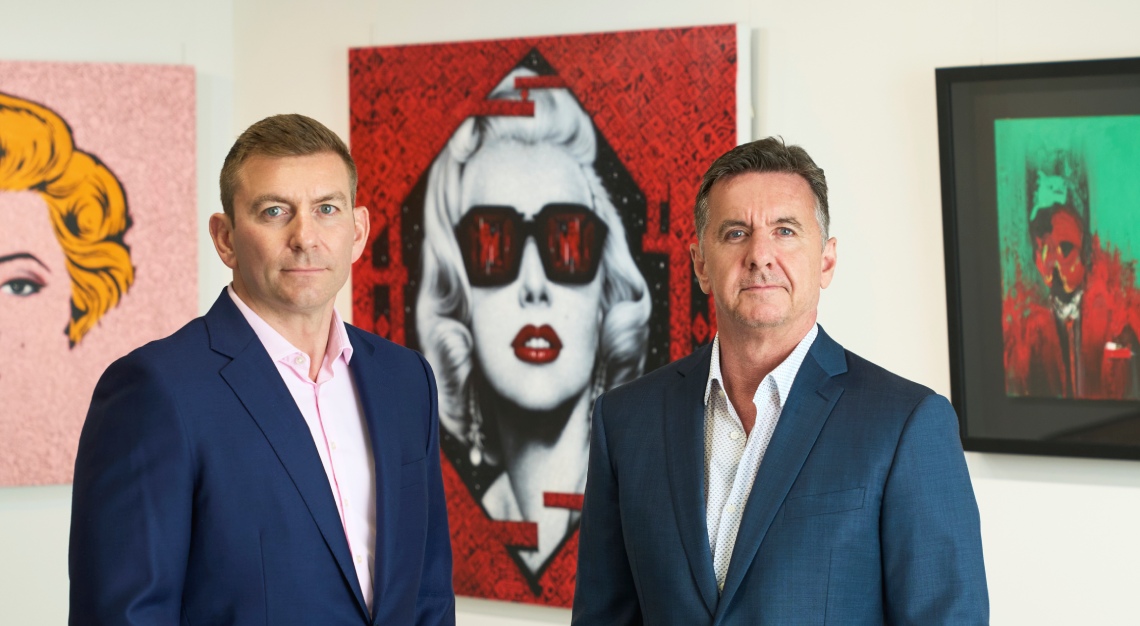Change is the only constant—so bask in it, advises Alex Manson, the guy who leads SC Ventures at Standard Chartered
Editor’s note: See other Mind Your Business interviews here.
There are parallels between endurance sports and resilience in business. For Alex Manson, both arenas demand three vital indications of commitment for them to be undertaken meaningfully and successfully: trusting the process, being goal-focussed and staying resolutely purposeful.
Besides the fact that they are words to live by, the gravity they command derives from the French banker’s over-three-decades-long tenure in the world of finance, one that has been marked by trailblazing feats of disruption—such as facilitating Standard Chartered Bank’s first-ever, landmark investment in a blockchain company, cementing its place in history as among the earliest adopters in that arena. His arc has taken him across North America, Europe and Asia Pacific, where, in Singapore, he stands at the helm of SC Ventures, the corporate venture capital arm of Standard Chartered dedicated to rewiring the DNA of banking and bringing breakthrough ideas to scale.
With the world feverishly accelerating towards an incrementally technologised future, he reflects on how businesses can grow by serving their customers better, as well as the place of finance in this milieu.
How did you weather the storm of two pandemics?
When I first read this question, I was confused because I almost forgot about the first one. But if I were to reflect on it, the conclusion I’ll come to is how resilient people are. The first pandemic was very Hong Kong-focussed. We thought the world was going down. But it turned out to be just a trough. People got back into action and the country thrived.
The second pandemic was more tragic, across multiple levels. Yet, there were silver linings, especially in the innovation space. The joke some people made was that the pandemic was the best chief innovation officer. It enabled digital adoption in completely unexpected ways and had a profound impact on commerce, particularly, e-commerce. It confirms that we need to serve the online economy better than in the past, simply because it’s become a very important part of people’s lives. It all comes back to resilience and humanity’s ability to adapt.
‘Disruption’ and ‘finance’ are complex concepts. In the broadest sense, what is disruption in finance, to you?
Clients. It’s clients having different expectations. Contrary to common perception, it’s not about technology per se. Technology is an enabler. It’s because of technology that people have different expectations. What’s possible now wasn’t possible a few years ago. As a result, clients—and societies at large—expect finance to do certain things for them and in certain ways. That’s what’s disruptive. That’s why businesses have to adapt or become irrelevant.
What is the single most disruptive force that has impacted finance?
Technology makes things possible that weren’t possible before. That’s what spurs the expectation that things should be done differently. So it’s about integrating finance into people’s lives as opposed to forcing people to go to a bank branch to do business. This seamless integration of financial services, the way we navigate on-to-off-line and, over time, virtual reality, has an implication on finance, identity management and how we transact. Data and data science are crucial elements of this. It’s a recent phenomenon and it has a huge impact on financial institutions and what they can do.
In the midst of all this now lies blockchain. Is it friend or foe?
It’s neither. Blockchain is a foundational technology, meaning it’s neither good nor bad. So, when people say we should regulate blockchain or Artificial Intelligence, it’s nonsensical. You cannot regulate a foundational technology, you can only do so for its use cases. Blockchain is a ledger. It’s cool and it’s next generation, but it’s still a ledger. You can use it for multiple things and these use cases may or may not be desirable.
My point is that blockchain is neither good nor bad. It is what it is. But once we know that it exists, can we un-invent it? Can we un-invent fire? It’s dangerous but once you know how to deal with it, it’s a good thing. The same thing is applicable to blockchain and data science.
In this day and age of unregulated currencies and tokenisation, what does ‘money’ mean?
That’s a great question. Money is an element of wealth. It’s a form of value accumulated by a business or individual. You’re trusting some institutions to safeguard and grow it. Separately, it’s also a means of exchange to be transacted. Underpinning both is data, or information, which is worth a lot and whose integrity needs to be preserved. If I had a crystal ball, I’d say that the form of money may change and what central banks choose to do to money may change, but the principles of what money is are unlikely to change.
Lastly, in this arena where change is a constant and you can’t sit still for a minute, what keeps you personally invested in the future and looking forward to what’s next?
You said it. The one thing I know is that this is all going to change. It’s perhaps the only thing we know, which means we don’t know what we don’t know. Banking and finance have kept me intellectually engaged for over 30 years now. It’s been fascinating and a great evolution. It’s specifically because I know it keeps changing that I’m always looking forward to learning new things.
I also think that what I’m doing is worth doing because the problems we’re solving are worth solving. Societies need finance. If it weren’t for finance, growth wouldn’t happen, welfare wouldn’t grow; the wellbeing of entire populations would be challenged. If you go back to the purpose of it, finance is an industry that is very purposeful. That’s inspiring to me.






